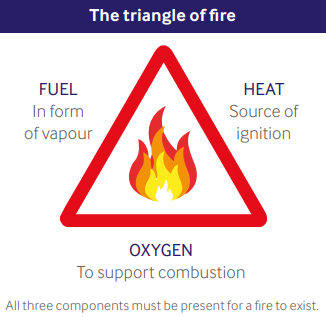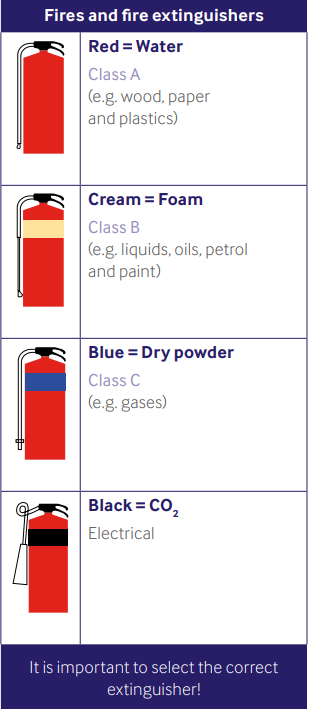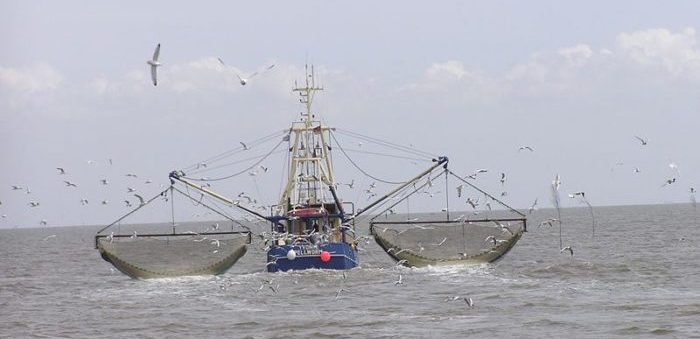In its Fishing Vessel Safety guide released in conjunction with UK’s Maritime Safety Week, the Shipowners Club provides, among others, best practice advice on fishing vessels’ protection from fire. There have been many studies carried out over the years showing that fatalities on fishing vessels remain a real threat, making it one of the most dangerous jobs globally.
Firstly, it is imperative that the vessel’s crew understands:
- The principles of firefighting, including The Triangle of Fire (see below)
- How to use basic firefighting equipment (including fire blankets)
- The areas most likely to be susceptible to fire hazards,such asthe engine room, galley, accommodation spaces, storerooms and wheelhouse
- Fire hazards, such as oily rags, grease on electrical equipment, cookers and hot surfaces, drying clothes over heaters, stoves and smoking in bunks.

Furthermore, it is important that extinguishers are fit for purpose. Extinguishers are colour coded according to the type of fire they are suitable for and it is essential that crew members are given training on the respective categories:

The risk of fire can be dramatically reduced by keeping a good maintenance regime and implementing good working practices such as:
- Cleaning ventilator systems.
- Correctly locating liquid petroleum gas(LPG) cylinders with efficient detectorsystems.
- Correctly storing hazardous substances.
- Ensuring all spills are cleaned in good time.
- Ensuring correct and practical maintenance regimes are in place and utilised.
- Ensuring that extinguishers are correctly sited and maintained.
- Maintaining on board cleanliness and tidiness.
- Ensuring that wheelhouse equipment is earthed.
- Maintaining electrical equipment.
- Maintaining engine room and associated compartments.
- Maintaining escape routes.
- Maintaining galley and galley equipment, including a good cooking regime.
- Maintaining water pumps.
- Not drying clothes over stoves or heaters.
- Not leaving gear near ignition sources.
- Not smoking in bunks and cabins.
- Not smoking near electrical cells on charge.
- Not storing gear in engine room compartments.
- Not storing flares in accommodation spaces































































